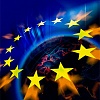German society and Its Reaction on Crisis in Ukraine
In
Log in if you are already registered
In the German political environment there is no common view towards Russian performance in Ukraine. Nonetheless the idea that “the fire made by locals, the matches are from Russia” is clear for all parties. There are a few “Putin-Versteher”, Admirer of Putins among German politicians. The former chancellor Helmut Schmidt, ex-minister Egon Bahr, MP Sahra Wagenknecht (The Left Party) proclaim some doubts on the legality of the government in Kiev. Although most of politicians keep the “main stream” condemning the Crimea annexation by Russian militaries.
Mr. Schaeuble, finance minister warned his countrymen that “Germans in line of their national history already learn the same explanation on territorial occupation” and he constantly told „Crimea is a part of Ukraine and Russian actions are unacceptable". Mr. Frank-Walter Steinmeier, the foreign minister warned Russia that the international law´ violation and the“destruction of the principle on territorial integrity could at the end be in danger for the multi-ethnic Russian state… “.
The SPD Party´ Vice-Chancellor Mr. Sigmar Gabriel makes Russia responsible for returning “the spirit of nationalism” on European continent and warned Moscow from “willing to let tanks roll across European borders”.
There is also no common public opinion among German inhabitants as a reaction on the crisis in Ukraine. After referendum of March 16, 2014 and followed annexation of Crimea “Der Spiegel” magazine published his polling results on question how much understanding do Germans have on Russian actions in Crimea? 23% respondents have no understanding at all; 19% respondents show a few understanding; 40% respondents partly understand aforementioned actions and 15% respondents have completely understanding for Russian actions in Crimea. Additionally, 54% respondents thought that EU and the USA have to accept entry of the Crimea into Russia, and only 38% spoke against it.
The opinion of Europeans on the applied sanctions towards Russia is even more provoking, 60% respondents think that sanctions were sufficient; 34% respondents - the sanktions were and are needless.
There is one more frustrating result of FAZ´ polling among German inhabitants. 15% respondents in Germany are satisfied with German-Russian relation, 76% respondents consider the relationship between both countries as disturbed and in troubles. The number of German inhabitants wishing and searching close relation to Russia goes down. Currently, there are only 32 % respondents interested in close relations and growing cooperation with Russia.
Politicians, cultural leaders and citizens were divided in different groups presenting opposed views on Ukrainian crisis. As a result the chosen by European stakeholder’s strategy becomes day by day more in misbalance.




